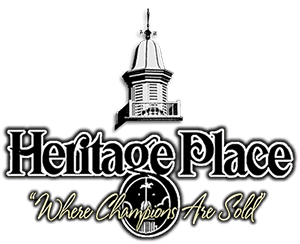
© Horsephotos
Courtesy Thoroughbred Daily News
By T. D. Thornton
[hr]
The $1.1-trillion federal spending package approved by the United States Congress on Friday includes several items that will affect taxpayers involved in the horse racing industry.
Most notable is a provision that extends the three-year tax depreciation for all racehorses through 2016. The Protecting Americans from Tax Hikes Act of 2015 (PATH) has been a top legislative priority for the National Thoroughbred Racing Association (NTRA) since the provision’s initial enactment as part of the 2008 Farm Bill.
According to the NTRA, the provision allows taxpayers to depreciate, on a three-year schedule, racehorses 24 months of age and younger when purchased and placed into service (as opposed to a seven-year schedule). The accelerated schedule better reflects the length of a typical racehorse’s career and is more equitable for owners.
The PATH Act also retroactively extends two other provisions that spur investment in racehorses and depreciable farm equipment.
“Bonus depreciation” will remain set at 50% and may be used by business owners who purchase and place in service qualified new depreciable property. Yearlings that an owner purchases and puts into a training program are one example of eligible property. Bonus depreciation is set at 50% for 2015, 2016 and 2017, at 40% for 2018, and at 30% for 2019.
The “Section 179 expense allowance” will be set at $500,000, with a $2 million threshold for qualified new or used property purchased and placed in service by small business owners in many industries. Total purchases of qualified property that exceed $2 million reduce the taxpayer’s expense allowance dollar for dollar. Broodmares may be eligible for expensing and are an example of “used property” because of their prior use as a racehorse or broodmare. The comprehensive budget and tax legislation will make the Section 179 expense allowance incentive permanent at this level.
“The NTRA applauds the efforts of Congress in recognizing the important role of three-year depreciation for purchasers of young racehorses,” NTRA President and Chief Executive Officer Alex Waldrop said in a press release. “Owners and breeders can now invest with confidence knowing that this important tax incentive will be available for at least the next two years.”
In a different section of the 2,009-page omnibus appropriations bill, Congress also approved provisions backed by the NTRA that offer relief for H-2B visa employers such as horse trainers.
According to the Department of Labor, the H-2B non-immigrant program “permits employers to temporarily hire non-immigrants to perform non-agricultural labor or services in the United States. The employment must be of a temporary nature for a limited period of time such as a one-time occurrence, seasonal need, peak-load need or intermittent need.”
The NTRA release pointed out that “the lack of documented H-2B workers has significantly hindered the ability of horsemen to hire qualified backstretch employees” while highlighting the following key points:
- H-2B returning workers are exempt from the annual 66,000 H-2B cap.
- Those paying H-2B wages are allowed the use of private wage surveys, which are not allowed under current H-2B rules.
- Seasonal employment is clearly defined as 10 months of employment, as opposed to nine months in the current H-2B rules.
- The DOL is prevented from implementing the provisions of current H-2B rules related to corresponding employment and the 3/4 guarantee requiring a set number of work hours.
- The DOL is prohibited from implementing a burdensome new enforcement scheme related to auditing of employers and certifying officer assisted recruitment.
“We applaud Congress for recognizing the need for more H-2B visas, which will allow trainers and other major employers in the Thoroughbred industry to properly hire the workers they need,” said Waldrop. “Thoroughbred racing and breeding still need comprehensive immigration reform, but these changes to the H-2B visa program are a step in the right direction.”
A different item in the passed legislation will effectively prohibit horse slaughter in the United States in fiscal year 2016 by blocking funding for Agriculture Department inspectors to preside over equine meat-processing facilities. The language in the bill extends a de facto federal anti-slaughter policy that has been in effect since 2005, with the exception of a brief period in 2012-13.
In somewhat of a surprise, the House overwhelmingly approved the Consolidated Appropriations Act of 2016 in a 316-113 vote. The Senate later backed the bill 65-33. President Barack Obama is expected to sign the bill into law shortly.
